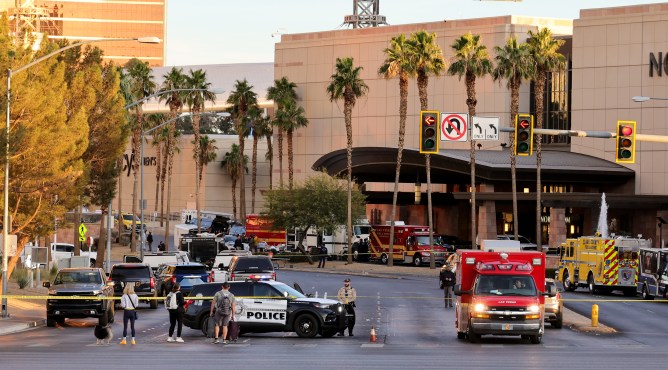Two Individuals Rented Cars from Turo, Causing Devastating Consequences
In a shocking and disturbing turn of events, two individuals rented cars from Turo, a peer-to-peer car-sharing platform, to commit acts of violence. The first incident occurred in New Orleans, where a military veteran driving a Ford F-150 Lightning drove into a crowd of people, resulting in the deaths of at least 15 individuals. The second incident took place in Las Vegas, where an active-duty Green Beret rented a Tesla Cybertruck and allegedly blew it up in front of the Trump International Hotel.
Turo’s Response
In response to these heinous crimes, Turo’s chief executive, Andre Haddad, released a statement expressing his outrage and shock at how these individuals had abused their platform. He noted that Turo is working around the clock to determine how this could have happened and to prevent such incidents in the future.
The Issue of Screening Renter
But the question remains: how could Turo or any similar platform have prevented this? The answer lies in its screening process for renters. Turo claims to use a proprietary multi-layer, data-science-based trust and safety algorithm called the Turo Risk Score, which is built using 50 internal and external data sources. However, it is unclear what exactly this means, including whether normal criminal background checks are performed.
Controversies Surrounding Turo
Over the years, Turo has faced controversies related to its screening process. Some bad actors have managed to slip through the cracks, with cars on its platform being used for human and drug trafficking. Additionally, people who claim to be hosts regularly post on the Turo subreddit page about their cars being rented out to individuals with criminal histories.
Valid Driver’s Licenses and Clean Backgrounds
Despite these concerns, both perpetrators of this week’s crimes had valid driver’s licenses, clean criminal backgrounds, and were decorated U.S. military servicemembers. This raises questions about the effectiveness of Turo’s screening process and whether it is sufficient to prevent such incidents.
Comparison with Traditional Rental Companies
Turo’s CEO, Andre Haddad, noted that these individuals could have easily rented cars from traditional rental companies without being flagged as a high-risk individual. He emphasized that Turo does not believe these two individuals would have been identified by anyone, including law enforcement.
Incident Statistics
According to Turo, it has facilitated 27 million trips over the past 12 years, with fewer than 0.10% ending in serious incidents such as vehicle theft.
Turo’s Future Plans
In response to these incidents, Turo plans to invest in improving its risk score algorithm and assemble a team of former law enforcement professionals to help assess future risk. Additionally, the company will be consulting with national security and counterterrorism experts to learn more about how it can prevent such incidents from occurring in the future.
Conclusion
The use of Turo’s car-sharing platform for acts of violence raises serious concerns about the effectiveness of its screening process. While Turo has taken steps to address these issues, the fact remains that two individuals with valid driver’s licenses and clean backgrounds were able to commit such heinous crimes using their platform.
What’s Next?
As Turo moves forward, it will be essential for them to work closely with law enforcement agencies and national security experts to develop more effective measures to prevent such incidents from occurring. The company must also be transparent about its screening process and provide clear answers to questions about how it can prevent similar crimes in the future.
Related Topics
Recent Stories
- Samsung will unveil the Galaxy S25 on January 22 — here’s what we expect
- Trump’s DOT pick wants EV owners to pay to use roads
- Check out the futuristic Honda 0 SUVTC Video
Stay Up-to-Date
- Subscribe to our newsletter for the latest news and updates on transportation, technology, and more.
- Follow us on social media to stay informed about the latest developments in these fields.
